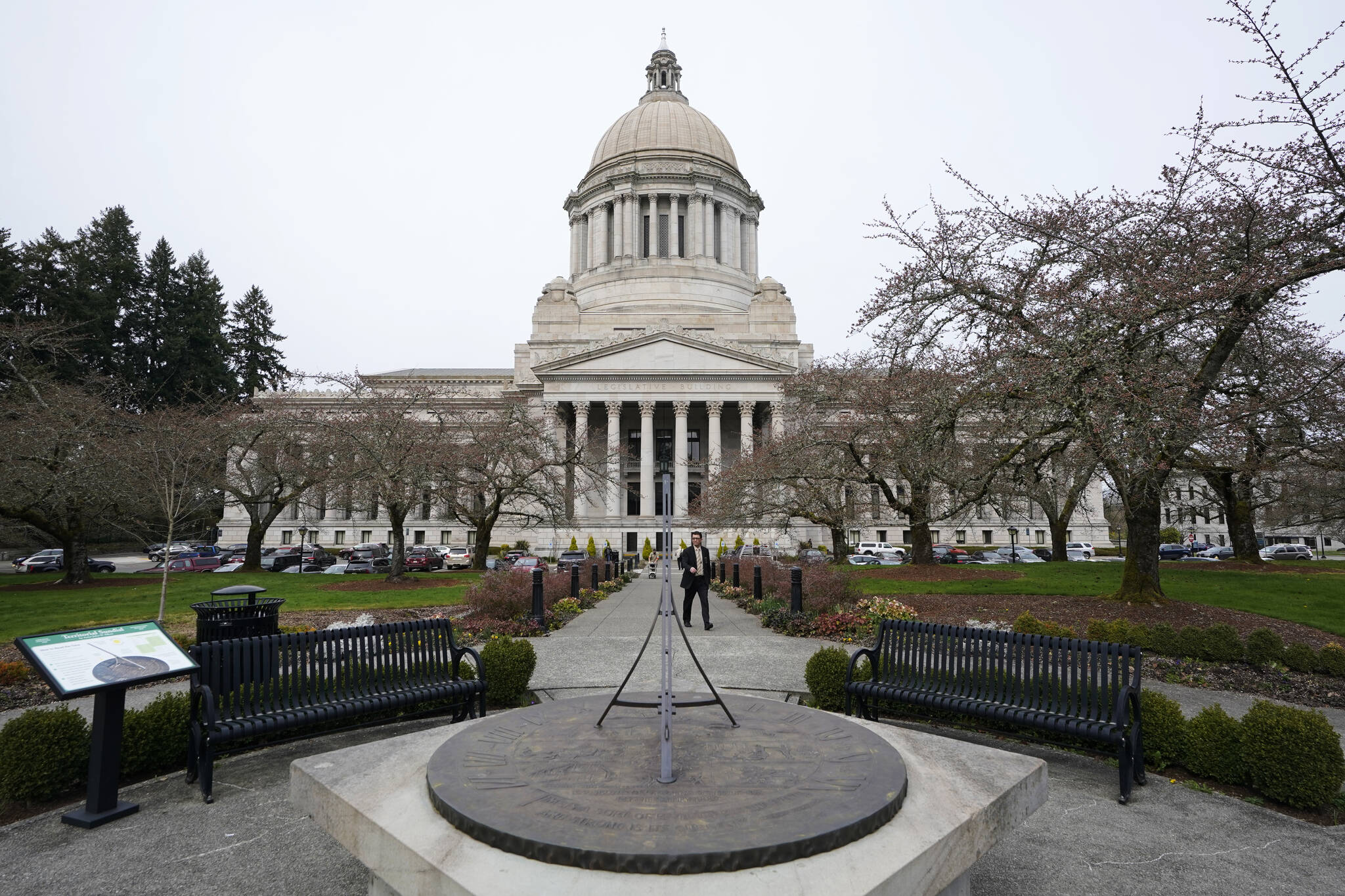OLYMPIA — Lawmakers are at a crossroads again on what to do about illegal drug possession.
Should cops make arrests and, if so, on what charge?
Or should a person be referred to treatment rather than jail and, if so, are there providers available?
And if a person convicted for possession seeks treatment when they get out, can they get their record cleansed?
Those are among the questions driving development of a multi-faceted and long-term response to the state Supreme Court’s erasure of Washington’s longstanding law making simple drug possession a felony.
That 2021 ruling, known as the Blake decision, led to people getting out of jail and getting their possession convictions vacated. Absent any penalty for possession, the Legislature rushed in to make it a misdemeanor but require cops refer people to treatment before arresting them.
Those rules expire July 1, giving lawmakers this session to hammer out a lasting approach. They’ve settled on Senate Bill 5536 drafted by Democratic Sen. June Robinson, of Everett, as the legislative vehicle.
It would make possession a gross misdemeanor and encourage cops and prosecutors to steer individuals to services. Those arrested could avoid prosecution if they agree to enter a pre-trial diversion program. And a person could get a conviction for simple drug possession vacated by completing treatment.
In addition, opioid treatment programs, both mobile and fixed-site medication facilities and recovery residences would be deemed “essential public facilities,” which follow a different process for approval in cities and counties. This could speed up opening of services in areas where they may be local opposition.
Robinson’s bill passed out of the Senate Law and Justice Committee on Thursday after provisions for a cache of treatment-focused programs got added in. The new language reflects recommendations from the Substance Use Recovery Services Advisory Committee, a bipartisan committee that spent the last two years crafting a post-Blake response.
The bill envisions stepped-up efforts to connect unsheltered individuals with services, assist parents of children with substance use disorder, provide job training for those recovering from addiction and increase availability of opioid use disorder medication in jails.
“You’re starting to see all of the different viewpoints and positions on how to solve this issue,” Robinson said. “We want to offer lots of treatment options and have penalties for people who don’t choose treatment and continue to use.”
Many law enforcement officials and city leaders back that approach. Since the Blake decision and subsequent legislative response, they say they’ve seen more people publicly using drugs and fewer acting on referrals to treatment. A harsher penalty with potential arrest will restore a degree of leverage to get individuals to seek services, they say.
At a hearing Monday, Everett Chief of Police Dan Templeman told the Law and Justice Committee that of 398 referrals for treatment since the temporary fix went into effect, only one person accepted it.
“What we’re doing today is not working,” he said.
James McMahan, policy director of the Washington Association of Sheriffs and Police Chiefs, was more blunt.
“Our experiment with effective legalization of drugs has failed,” he said. “Our jails were never filled with only simple possession cases but now our parks and our sidewalks are. It is neither humane nor compassionate to leave these with substance use disorder to suffer to their own devices or to require police stand by and simply do nothing.”
Many Democratic lawmakers favor decriminalizing possession and frustrated with the focus on sanctions. Substance use disorder is a public health issue, not a criminal issue, they say.
“That part is sucking up all of the oxygen,” said Rep. Lauren Davis, D-Shoreline, who served on the advisory committee and helped craft the 2021 bill. “We need to focus on what is the Legislature’s response to substance use disorder and what is the Legislature’s response to untreated addiction in communities.”
Inclusion of advisory committee recommendations is critical to ultimately securing their votes. It won’t be cheap.
“We just have to summon the political will to provide the needed resources,” said Rep. Roger Goodman, D-Kirkland, chair of the House committee that will hear the Senate bill when it arrives.
Republican senators want illegal drug possession to be a felony again. They’re not convinced a gross misdemeanor will be enough to change behavior.
“There’s lots in it I like,” Sen. Keith Wagoner, R-Sedro-Woolley, said of the bill before voting against it. “I don’t think it gets at the core of the problem which is to compel people to get help.”
Another problem, he said, is the proposed rules around the siting of new facilities could override interests and concerns of residents.
“They gain understanding when involved,” he said. “Forcing it on a community before they can talk about it and socialize it … will not help destigmatize facilities.”
Sen. Manka Dhingra, D-Redmond, the committee chair and an advisory committee member, found a silver lining in what’s been a sometimes heated debate.
“What has been really fascinating when trying to deal with the Blake issue is really the fact that everyone is coming to this work with the intention of getting people treatment and helping them on their journey to recovery,” she said.
Jerry Cornfield: 360-352-8623; jcornfield@heraldnet.com; Twitter: @dospueblos.
Talk to us
> Give us your news tips.
> Send us a letter to the editor.
> More Herald contact information.

























